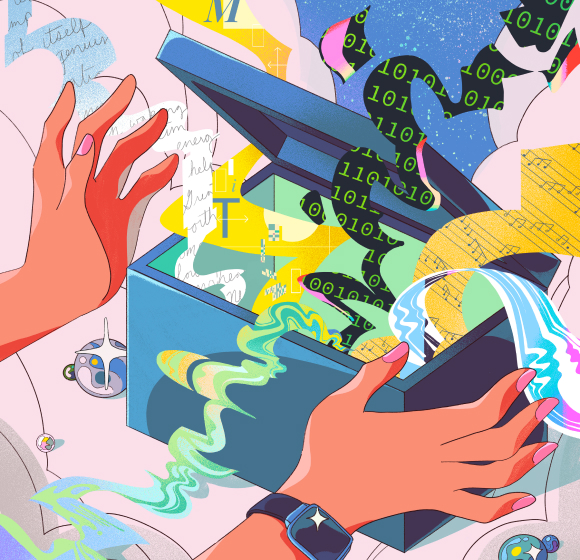Generative AI has seeped into many corners of our lives, and threatens to upend the economy as we know it, from education to the film industry. How do workers’ encounters with it differ from their experiences with other systems of automation? How are they similar, and how might this help us understand the shape and stakes of this latest technology?
In this three-part Databite series, Data & Society’s Labor Futures program brought together creators, platform workers, call center workers, coders, therapists, and performers for conversations with technologists, researchers, journalists, and economists to complicate the story of generative AI. By centering workers’ experiences and interrogating the relationship between generative AI and underexplored issues of hierarchy, recognition, and adaptation in labor, these interdisciplinary conversations shed light on how new technological systems are impacting worker agency and power.


